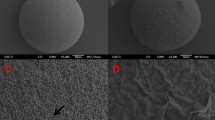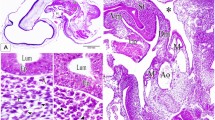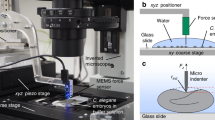Abstract
IT has recently been shown by Mazia1 that β-mercaptoethanol, a strongly reducing substance containing —SH, exerts powerful effects on sea urchin eggs (inhibition of cleavage, production of twin embryos). In the present work, the effects of mercaptoethanol (M/100-M/1,000) have been studied on amphibian eggs (frog, Pleurodeles and Axolotl) in order to test the hypothesis which I presented earlier 2,3, that morphogenetic movements might be linked to oxidation of —SH groups of fibrous proteins. It was to be expected, according to this hypothesis, that mercaptoethanol would very effectively block protein —SH oxidation and, therefore, prevent morphogenetic movements. The experimental results indicate that this expectation has been fulfilled.
This is a preview of subscription content, access via your institution
Access options
Subscribe to this journal
Receive 51 print issues and online access
$199.00 per year
only $3.90 per issue
Buy this article
- Purchase on Springer Link
- Instant access to full article PDF
Prices may be subject to local taxes which are calculated during checkout
Similar content being viewed by others
References
Mazia, D., Exp. Cell. Res. (in the press).
Brachet, J., “Embryologie chimique” (Desoer, Liège, 1944).
Rapkine, L., and Brachet, J., Bull. Soc. Chim. Biol., 33, 427 (1951).
Author information
Authors and Affiliations
Rights and permissions
About this article
Cite this article
BRACHET, J. Effects of β-Mercaptoethanol on Morphogenesis in Amphibian Eggs. Nature 181, 1736–1737 (1958). https://doi.org/10.1038/1811736a0
Issue Date:
DOI: https://doi.org/10.1038/1811736a0
This article is cited by
-
A Morphogenetic Effect of Beta-Mercaptoethanol: Distribution of Water in the Embryo
Nature (1961)
-
Die Wirkung von β-Mercaptoäthanol auf junge Embryonen der weißen Ratte
Die Naturwissenschaften (1961)
-
Thiol Groups and Morphogensis
Nature (1959)
Comments
By submitting a comment you agree to abide by our Terms and Community Guidelines. If you find something abusive or that does not comply with our terms or guidelines please flag it as inappropriate.



